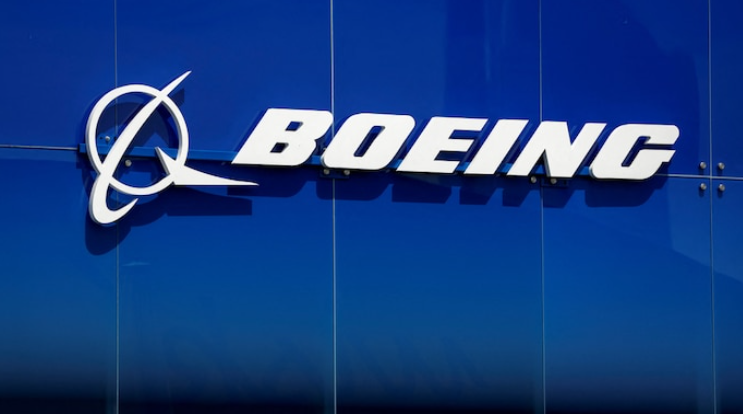![]()
On a flight from Sydney, Australia, to Auckland, New Zealand, a LATAM Airlines flight dropped in mid-air, injuring 50 passengers, of which ten were hospitalized.
On March 11, the Boeing 787-9 Dreamliner was smoothly cruising until the aircraft abruptly nosedived about 500 feet, forcefully sending individuals to the ceiling and back of the plane. The pilot managed to gain control of the plane and land in Auckland, according to their schedule. Upon arrival, the flight was greeted by paramedics and more than ten emergency vehicles to treat several passengers’ injuries.
According to a report from the Wall Street Journal, the Journal speculates that the incident was caused by a flight attendant accidentally hitting a switch on the back of the pilot’s seat. The seat-back switch, which controls the movement of the cockpit seat, caused the pilot to bump into the controls, which made the plane plunge. However, the Journal’s report has not been officially confirmed, and there is still an ongoing investigation from both New Zealand and Chilean aviation authorities. Black boxes and audio recordings are being used to gather more information about the incident.
Since the incident, Boeing has reached out to airlines to check the seats in their Dreamliner 787 aircraft. Boeing has told the press the seat switch was a potential hazard that was previously recognized; the company confirmed to the New York Times that there was a circulated report with instructions for inspecting and maintaining seat switches, which dates back to 2017. Nonetheless, Boeing is still facing criticism and a controversial reputation in the airline industry due to its troubled history and recent events.
Earlier this year, on Alaska Airlines Flight 1282, a rear door plug flew out of a Boeing plane due to missing bolts — an almost fatal accident had there been passengers seated next to the door plug. A couple of years prior, the same aircraft, the Boeing 737 Max, was responsible for 346 deaths in Ethiopia and Indonesia due to faulty sensors that caused two 737 Maxes to nosedive and crash.
In March alone, eight flights operated on Boeing planes had emergency landings, hydraulic leaks, diversions from the original route or missing pieces. Despite the fact that the LATAM Airlines incident was likely caused by the human error of a flight attendant, Boeing’s aircraft still suffer from a reputation of poor compliance with aviation industry safety standards.
In response to Boeing’s latest safety woes, the Federal Aviation Administration (FAA) has barred the manufacturing company from expanding the production of its Boeing 737 Max. An FAA audit and expert panel review has identified new concerns for the company and its products.
First, Boeing failed 33 product audits out of 89 tests, and their employees conducted almost comical actions during the manufacturing processes of their aircraft. The New York Times found that Boeing’s fuselage makers at Spirit AeroSystems used a “hotel key card to check a door seal” and applied “liquid Dawn soap to a door seal to use a lubricant.”
Second, Boeing’s expert panel report stated there is immense miscommunication and a lack of safety culture within the company. The internal controls of the Boeing company do not always incentivize safety reporting or input from pilots, even in dire situations where human lives can be at risk. According to the panel, there is “a lack of awareness of safety-related metrics at all levels of the organization.”
Based on Boeing’s statements, the company is willing to embrace this period of challenges for much-needed change. Boeing Commercial Airplanes CFO, Brian West, shared at a Bank of America Global Industrials Conference, “Rest assured that there’s a lot of change happening at Boeing right now, and it’s a hard moment, and we’re probably better because of it, but I’m confident that we’re going to see our way through it.” He stated, “The other things that we’re working on to get after…are around things like training, tooling, our quality management system and how that links with our safety management system and picking up the signals on the factory floor, incentive compensation, to name a few.”
When asked about the customer backlash the company has faced and the possibility of consumer compensation, West discussed how they take full responsibility for the recent events and that there will be “consumer considerations” in the current quarter.
However, it may take a while for Boeing’s financials to recover from the mishaps. Since the door plug incident of the 737 Max, Boeing’s stock has dropped more than 25%. Additionally, according to Yahoo Finance, “Boeing is forecasting a negative year, [and] its Chief Financial Officer sees brighter days ahead, anticipating the company to have a ‘historic’ comeback in the 2025 to 2026 timeframe.”
Boeing’s dangerous and fatal equipment failures are a valuable lesson for the aviation industry regarding quality control requirements and proper management systems. These cases are also insightful for Georgetown University’s students in the McDonough School of Business.
It highlights the importance of performance measurements in large corporations, according to Professor Karen Kitching, an associate professor at the McDonough School of Business. Dr. Kitching stated that Boeing’s history of putting compensation-based performance targets ahead of passenger safety is a structure that “placed a heavy emphasis on a narrow measuring tool that can misalign company objectives with individual objectives.”
Boeing rewarded employees when the number of problems reported on the assembly line dropped, which disincentivizes defect reports from employees. Thus, Dr. Kitching noted that “when [her] students enter the workforce, they will remember the lesson: you get what you measure.”
Boeing’s recent mishaps in the news have signaled deeper systemic issues within the company, serving as a reminder to airlines and manufacturers about the vital importance of implementing stringent controls and having a strong company culture. Furthermore, it is an especially important lesson for Georgetown business students who are embarking on their professional journeys. While competitive advantages and leverages for companies are crucial, the safety of consumers must always take precedence, which requires the right performance metrics and internal controls.











